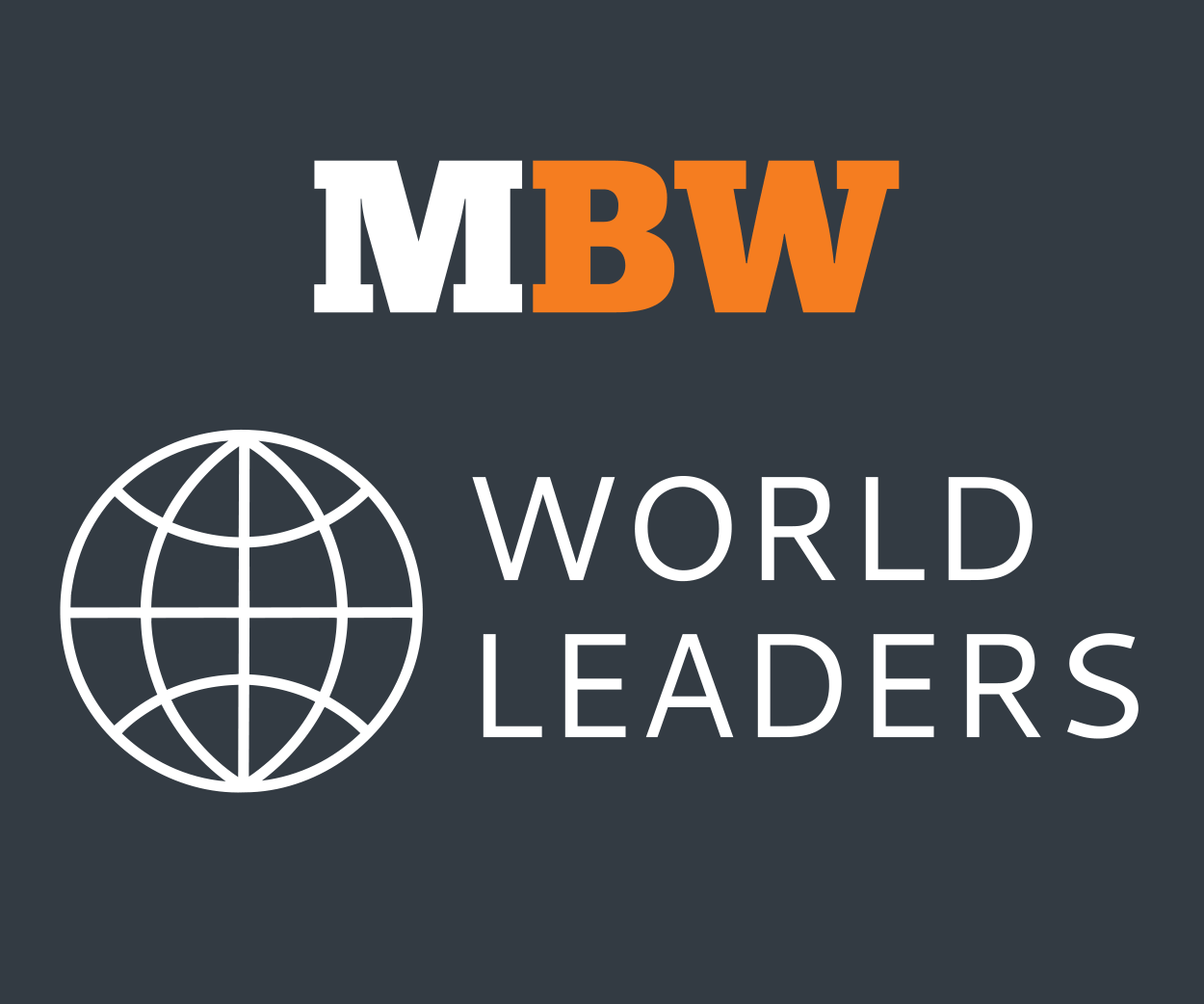MBW’s World Leaders is a regular series in which we turn the spotlight towards some of the most influential industry figures outside the US and UK markets. In this feature, we speak to Chidi Okeke, founder and CEO of uDux, Nigeria’s first domestically launched music streaming service. World Leaders is supported by PPL, a leading international neighbouring rights collector.

Chidi Okeke is cautiously optimistic about Africa’s music streaming potential.
Okeke, who founded uDux, Nigeria’s first domestically launched music streaming service in 2017, tells MBW that it “was clear” to him that “streaming was going to be the answer” when download and ringtone revenues started to decline in the country in around 2016.
He also adds, however, that “people think the streaming opportunity in Africa is easy – it’s not, it’s hard.”
Looking at uduX’s rapid ascent from fledgling music streaming service to fully-licensed Spotify rival over the past four years, you’d be forgiven for thinking otherwise.
Just two years after inception as a subsidiary of the Okeke-founded Groove Platforms, the service inked a licensing deal with Universal Music Group (in April 2019) and has also since been licensed by Sony Music and Warner Music Group.
In December, uduX inked a deal with MTN Nigeria – one of Africa’s largest providers of communications services with over 60m subscribers in Nigeria alone.
Okeke has almost two decades’ experience in the entertainment and media sector in sub Saharan Africa. In 2005 he joined Nigeria-based mobile app technology firm MTech Communications as General Manager and was promoted to Group MD in 2009.
While there, he expanded the firm’s focus from developing mobile apps to the distribution of digital music content, securing deals involving digital and physical licenses for what he says were some of the top selling African artists at that time.
Okeke subsequently established Mcomm in early 2011 as a “value-added service provider” for telcos in Nigeria, with the primary objective of distributing music content.
During this time there, he secured exclusive distribution deals and set up longstanding relationships with some of Africa’s biggest stars including Davido, Wizkid and Dbanj.
In 2017 he established Groove Networks, the holding company of uduX.
One of the biggest challenges for the music streaming business in Africa, says Okeke, is that “people get caught up in the numbers”.
“They see a population of over 1.3 billion people with a relatively young demographic and exploding access to the internet via smartphones and think it’s a done deal,” he adds. “It isn’t.”
Another hurdle, especially for local music streaming companies like his own, is competition from the likes of Spotify and Apple.
He tells MBW that uduX is often called the “African-Spotify” and that he’s asked how uduX plans to compete with these businesses “and their global marketing budgets”.
“Of course we can’t,” he says. “But nor are we trying to.”
He adds: “I’m far more interested in the success and model of something like Anghami [which is preparing to list on the NASDAQ this year] and what Eddy [Maroun] and Elie [Habib] have managed to achieve with a service that prioritizes the promotion of indigenous music.”
Here, Okeke tells MBW about the music streaming business in Nigeria and wider Africa, as well as his ambitions and predictions for his company and the market…
Why did you decide to launch Groove Platforms and subsequently uduX when you did?
Up until around 2016 it had been possible for African artists to monetise their music via downloads, ringtones and ringbacks before there was a sharp decline in those revenues.
“It was clear to me that streaming was going to be the answer and that there was an opportunity for a platform in my country that represented the true nature of African music alongside all the international artists, and one that was wholly-tuned into the intricacies of our cities and their cultures.”
It was clear to me that streaming was going to be the answer and that there was an opportunity for a platform in my country that represented the true nature of African music alongside all the international artists, and one that was wholly-tuned into the intricacies of our cities and their cultures.
It’s been key to me from the start that it would be a platform that would enable African artists to showcase their talents and earn a profitable living from it and that is a key differentiator from other services.
What were some of the biggest challenges you faced getting the platform to market?
Piracy is still rife here, we have relatively low wages across huge parts of the continent, and not everyone even has the means to pay. Less than 5% of the population has a bank card.
“In setting up uduX, I needed to get the right team together to meet those challenges, people who understood the market and what we were trying to do and who had the ability to think outside of the box and create some innovative solutions.”
In setting up uduX, I needed to get the right team together to meet those challenges, people who understood the market and what we were trying to do and who had the ability to think outside of the box and create some innovative solutions.
Whether that’s dealing in airtime solutions with telcos or coming up with complex solutions with FinTechs that involve treating up and coming artists as businesses looking for capital.
You recently ANNOUNCED POP REV, a tie up with the Nigerian saving and investment bank PiggyVest, and it’s about to launch. What was the idea behind that?
PopRev intends to harness the opportunity between musicians and people who are directly ‘invested’ in their music. It’s about sharing. Creating meaningful experiences that people can connect with and root for. The music industry has continuously failed to innovate, and this has nothing to do with a lack of technology. The problem with innovation in this space is the lack of incentives.
“The music industry has continuously failed to innovate, and this has nothing to do with a lack of technology. The problem with innovation in this space is the lack of incentives.”
PopRev gives artists access to funding, while letting them keep their masters. We’re creating a new artist revenue model driven by fans’ social engagement and the new normal of ‘sharing’. We want to give investors access to metrics and the performance of their investments on-demand. For the wider industry, we’re providing a leg-up to the untapped potential of musical talent in the African diaspora.
We’ll also be creating new products for the artists’ merch stores and the fan investors will also be owning a piece of that too, so we’re further unlocking the way in which fans can potentially benefit from supporting an artist. This is ground breaking.
uduX has secured deals with all three major labels in a relatively short space of time – tell us about the platform’s value proposition for these label partners?
The challenges for the labels have always been on access to and arguably more important understanding of the local market. Our uduX platform enables that access both to consumers and local artists.
It probably helps that I’ve been working with their artists for many years, people such as Davido, WizKid, Dbaj, Flavour and Phyno, and we have a reputation for being very supportive of those artists.
uduX is African-owned, whereas other music streaming players operating in the market are owned by foreign companies. What is the significance, in terms of the flow of revenue, of the uduX ownership structure compared with its rivals?
It’s hugely important. Nigerian music has an amazing history and an exciting future with Afrobeats exploding all around the world. Economically it’s important that this success is reflected back to its music business and local economy too. Our technologies were built here in Lagos, we’re creating jobs here, we’re hiring and financing services here.
“Nigerian music has an amazing history and an exciting future with Afrobeats exploding all around the world.”
I don’t expect that necessarily to be important to our consumers – they’ll be attracted by other factors – but I know it’s important to artists and there are many other stakeholders in the local value chain and even at a political level that feel this is important.
Ultimately I’m a proud Nigerian and Africa deserves music business solutions that are owned by Africans, not Nordic, American or Chinese companies. We’ve created a platform that’s focussed on bringing Africa to the world, we reward local artists on our platform better than has ever been done in the industry, and we’re committed to helping develop the industry here.
How competitive is the streaming market in Nigeria and wider Africa?
There are a few players but none with a clear market lead, but things are poised to change given the renewed focus on Africa by the likes of Spotify, Tidal and Apple etc.
uduX recently signed a deal with MTN – how big a role do you see telco deals playing in your long-term growth strategy?
MTN is one of the largest telecoms operators in Africa with over 230 million subscribers, so from a pure volume perspective this partnership is a key part of our strategy and we have a huge focus on it for the rest of this year.
I’ve worked with MTN in the past successfully and for them I think they have confidence in uduX as a technical partner.
What’s equally important and maybe less obvious is our mutual commitment towards local content development which is bound to have significant impact on the entire value chain.
What are uduX’s forecasts for the coming year, in terms of user growth?
Like other platforms operating here I’m not going to talk specifically on our numbers other than we are currently competitive with all the others.
We have got where we are by good organic growth and we’ve just launched our most significant telco partnership. MTN are very ambitious on what they want that partnership to achieve and they believe in scale.
What are the biggest barriers to growth in for uduX currently, and how can you overcome them
I would say for all services it’s changing the mindset on billing. People live the music but don’t necessarily want to pay for it. Subscriptions will allow us to invest in artists’ careers and the overall industry. I’m hoping we have deployed some effective payment solutions.
Broader than that, our ambitions for uduX go far beyond Nigeria and further investment will be needed for that.
What are your predictions for the future of the Nigerian music business in terms of its positioning and influence globally?
I’m confident. As mentioned, Nigerian music (Afrobeats, highlife etc) has been around many decades but has only recently gained the global recognition it deserves among wider music consumers.
I believe this global acceptance is just the beginning, there are many more amazing talents in Nigeria and Africa, and as they are discovered investment into our industry will only increase further.
And the same question for the wider African music industry?
The music industry in Africa will benefit hugely from the overwhelming increase of African music listenership which will be driven by services such as ours.
If there was one thing you could change about the music business – what would it be and why?
I would like to put more power in the hands of African curators and creatives. I would love to set up a creative fund to support and drive this initiative.





